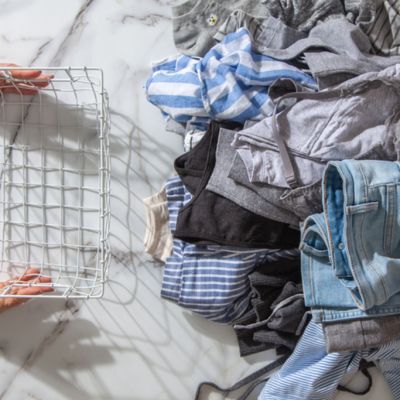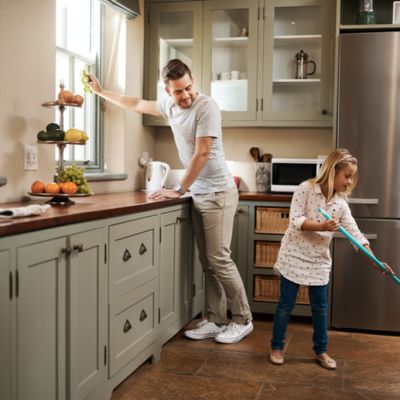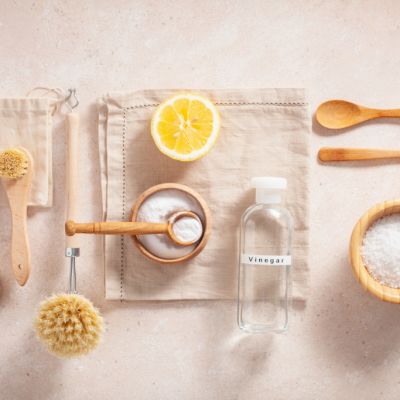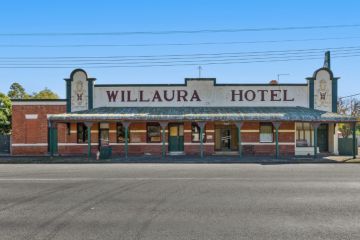Oprah's 'get your whole life organised guy' Peter Walsh on how to declutter
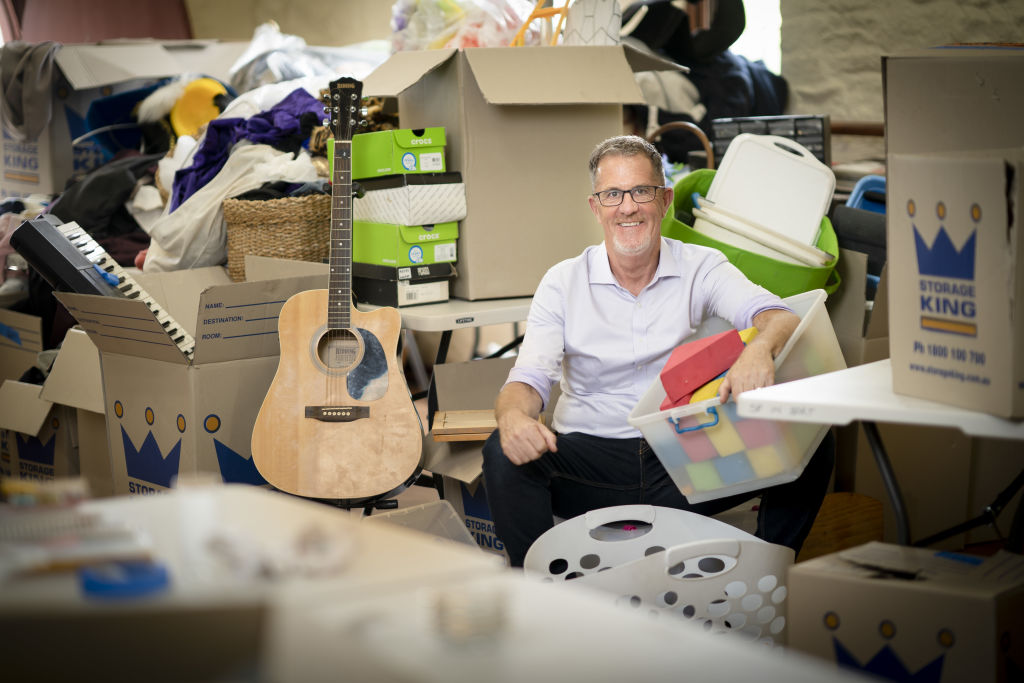
He’s been hailed as the go-to guy to get your whole life organised by screen queen Oprah Winfrey and, after a string of successful TV shows in the US, the decluttering king Peter Walsh has returned to Australian shores to co-host a new show, Space Invaders.
Walsh teams up with pro-renovator Cherie Barber and former Aussie Pickers star Lucas Callaghan to clear out, clean up and transform the homes and lives of Australians struggling with overwhelming clutter.
“Every episode looks at clutter and the effect that our stuff has on our relationships and our lives. That’s what’s so fascinating about the show, is that it explores, in different ways, our relationship with our stuff,” Walsh says.
It’s eye-opening viewing. Walsh recalls pulling 270 boxes of belongings from a single car garage, a house with two unused rooms jam-packed with enough stuff to fill a basketball court, and nearly 400 pairs of shoes in a loft apartment bedroom.
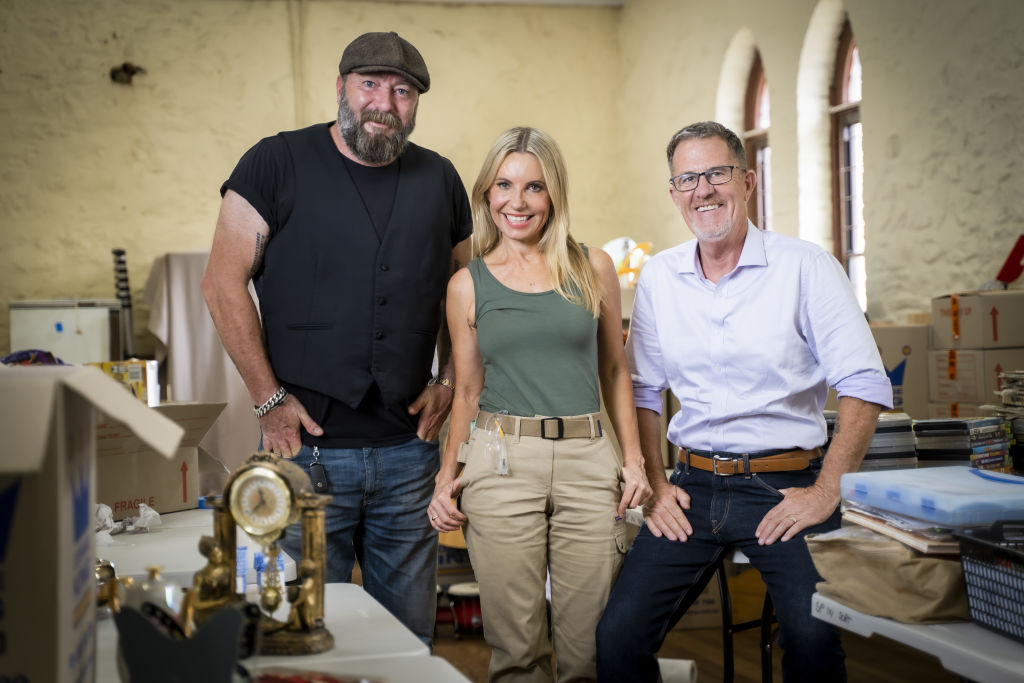
“It is staggering the amount of stuff that comes out of people’s homes,” he says.
“In each of these homes, people have gotten to a point where the clutter has so overwhelmed them that they don’t know what to do.”
It would be easy to dismiss these people as simply messy or lazy, but Walsh stresses that there’s a much greater factor at play – it’s always emotional and complicated.
“It’s never just about the stuff – it’s always about something else,” he says.
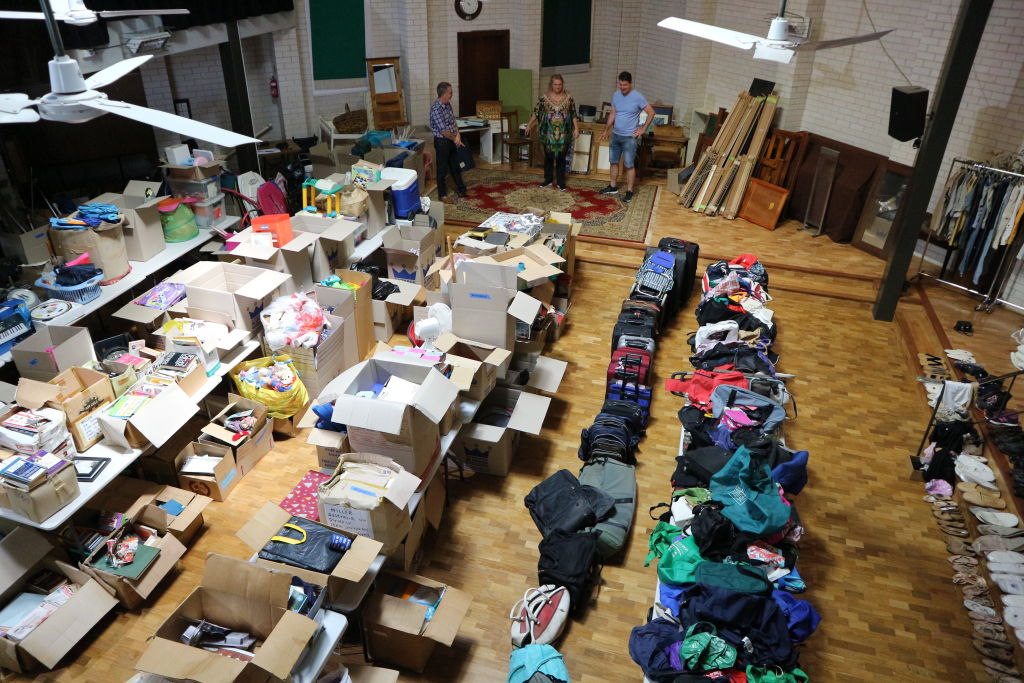
“When people talk about clutter, they say: ‘I feel suffocated’, ‘I feel buried’, ‘I feel like I’m drowning’, ‘I feel like I can’t breathe’, so all of these people are living in their own homes, and they’ve gotten to the point where they feel, metaphorically, like they are drowning in their own homes.”
There were over 400 applications for the 10-episode series. Applicants who didn’t know what the show involved or who the hosts were going to be but were aware they needed and wanted help to overhaul their homes and habits.
Walsh says it’s important to tackle the reasons why you’re accumulating stuff in the first place. By getting to the root cause of the issue, you’re better placed to maintain a clutter-free home in the future.
“If you tackle why it is you’re holding onto stuff and what it is that has driven you to this point – trauma, abuse, neglect, hurt, pain – all of those things, then people understand why they’re gathering the clutter around them.”
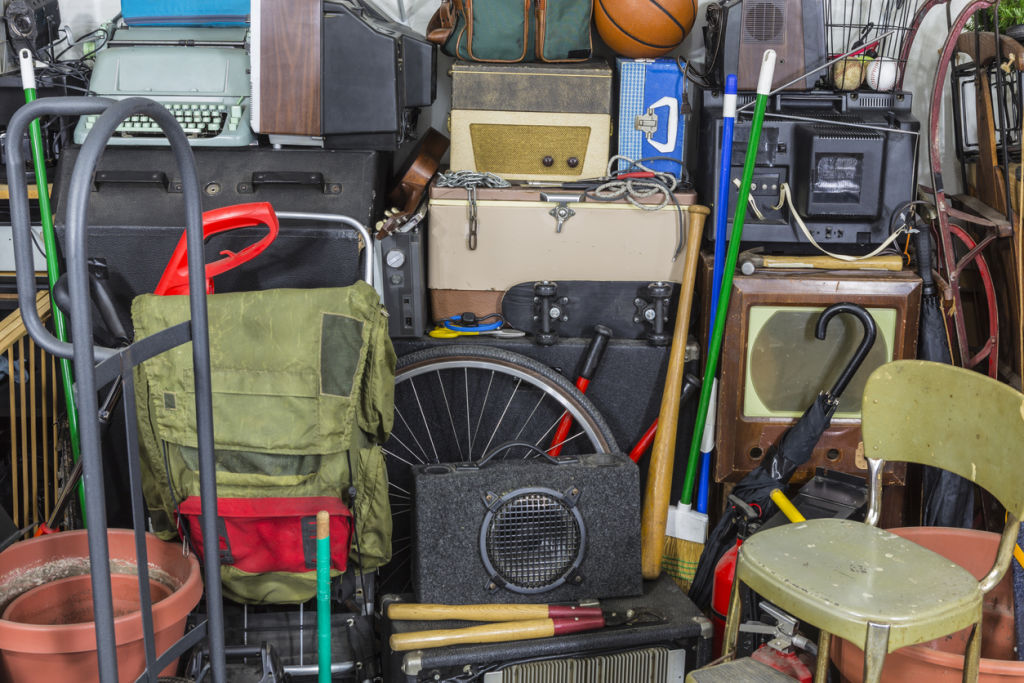
For Walsh, clutter generally falls into two categories: there’s memory clutter (that’s the sentimental stuff that reminds you of people or past events), and something Walsh terms “I-might-need-it-one-day” clutter (things you think you might need or use in the future).
Walsh says one of the first steps of decluttering is to ask a simple question: does each item help you create the life you want?
“If the things in your home aren’t helping you create the life, the family, and the space you want, what are they doing in your home? That’s the measure,” he says. “Not how much they cost, not who gave them to you, not are they colour-co-ordinated, not ‘I bought them on sale’.”
If they help you create the life you want and have space for them, they can stay. If they don’t, well, it’s time to let them go.
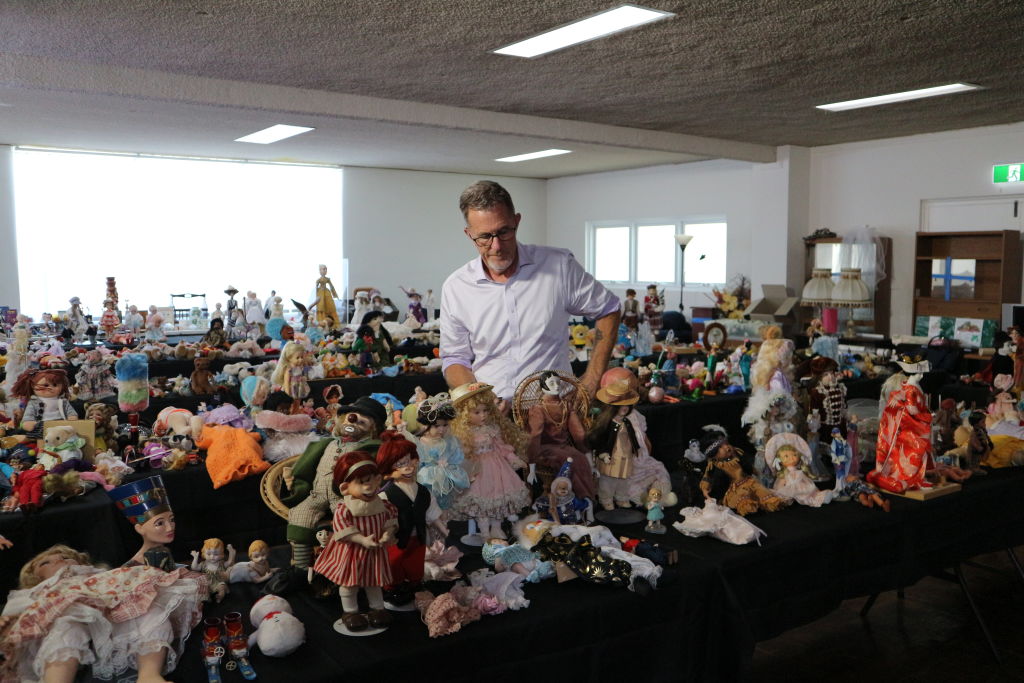
“Without exception, by the time we’ve finished, at least 80 per cent of what was in the homes has been let go. And without exception, by the time we’ve finished, they say, ‘I feel like a weight is off my shoulders’.”
Decluttering doesn’t just mean items are tossed away and sent to landfill. Walsh says most items are donated to charity or recycled, while as little as 5 per cent is sent to landfill.
“Generally, only about 20 per cent – sometimes even less – the homeowners decide to keep,” Walsh says.
Walsh believes that more of us are now re-examining our homes and our lives and re-evaluating what’s important to us, thanks to the COVID-19 pandemic.
“We’ve all been told for so long that happiness comes from the acquisition of stuff – that if we just buy more stuff, we’ll have the life we want. People are looking around and realising that all this stuff, instead of bringing happiness, has been drowning families and not bringing happiness at all.
“If your home isn’t a sanctuary; if your home doesn’t give you joy, happiness and peace, where do you find those things?”
Peter Walsh’s top three tips to maintain a clutter-free space
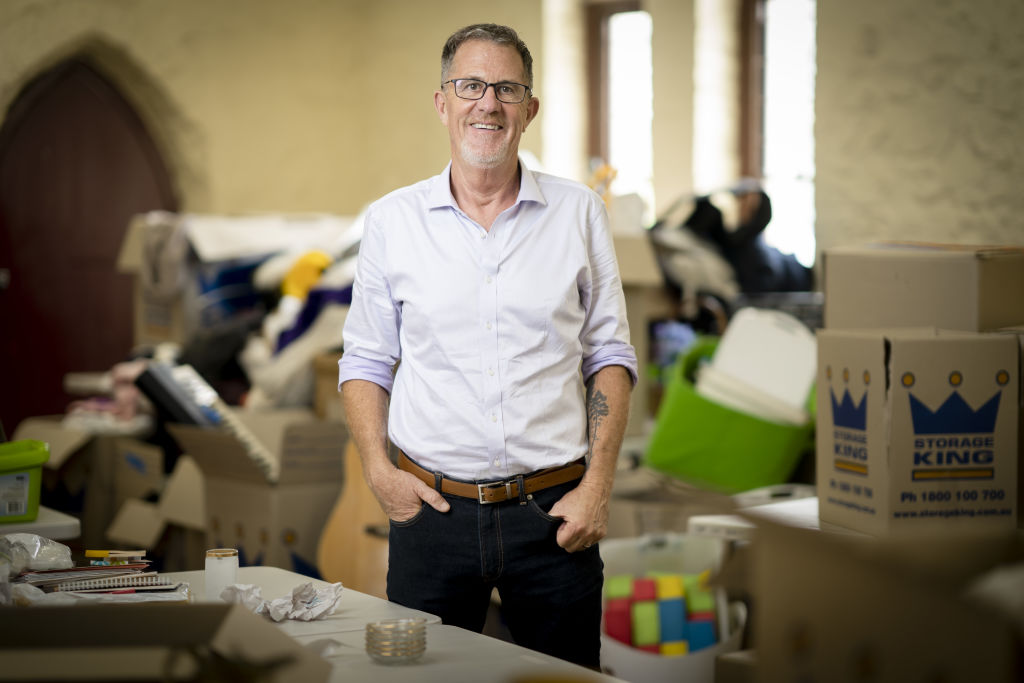
Stop using the word ‘later’
‘I’ll clean that later, I’ll put that away later’: The moment you procrastinate – the moment you start using the word later – you give clutter permission to take over.
Respect the limits of your space
If you don’t respect the limits of your space and overload your space, you can never be happy in that space.
Finish the cycle
If you start something, finish it. Don’t throw clothes on the bed and leave them there. Don’t leave mail on the counter and not open and deal with it.
Space Invaders premiers on Saturday, February 27 at 7.30pm on Nine. Nine is the majority owner of Domain.
We recommend
We thought you might like
States
Capital Cities
Capital Cities - Rentals
Popular Areas
Allhomes
More
- © 2025, CoStar Group Inc.
